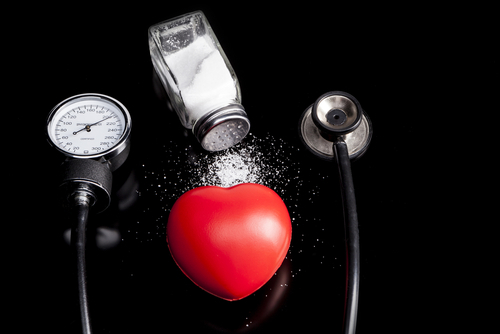Excess consumption of sodium associated with hypertension and increased risk of heart disease
UNI Jan 22, 2018
Salt is the primary source of sodium and increased consumption of sodium is associated with hypertension and increased risk of heart disease and stroke.

Increasing production of more and more processed food, rapid urbanization, and changing lifestyles are transforming dietary patterns. Highly processed foods are increasing in availability and becoming more affordable. People around the world are consuming more energy-dense foods that are high in saturated fats, trans fats, sugars, and salt. At the same time, as their eating patterns shift, people are consuming less fruit vegetables and dietary fibre (such as whole grains), that are key components of a healthy diet. Fruits and vegetables contain potassium, which contributes to reduce blood pressure.
Salt in the diet can come from processed foods, either because they are particularly high in salt (such as ready meals, processed meats like bacon, ham and salami, cheese, salty snack foods, and instant noodles, among others) or because they are consumed frequently in large amounts (such as bread and processed cereal products). Salt is also added to food during cooking (bouillon and stock cubes) or at the table (soy sauce, fish sauce and table salt).
However, some manufacturers are reformulating recipes to reduce the salt content of their products and consumers should read food labels and choose products low in sodium. For adults: WHO recommends that adults consume less than 5 g (just under a teaspoon) of salt per day1. For children: WHO recommends that the recommended maximum intake of salt for adults be adjusted downward for children aged 2 to 15 years based on their energy requirements relative to those of adults. This recommendation for children does not address the period of exclusive breastfeeding (0 to 6 months) or the period of complementary feeding with continued breastfeeding (6 to 24 months).
All salt that is consumed should be iodized or “fortified” with iodine, which is essential for healthy brain development in the fetus and young child and optimizing people’s mental function in general. Sodium is an essential nutrient necessary for maintenance of plasma volume, acid-base balance, transmission of nerve impulses and normal cell function. Excess sodium is linked to adverse health outcomes, including increased blood pressure.
The primary contributors to dietary sodium consumption depend on the cultural context and dietary habits of a population. Sodium is found naturally in a variety of foods, such as milk, meat and shellfish. It is often found in high amounts in processed foods such as breads, processed meat and snack foods, as well as in condiments (e.g. soy source, fish source). Sodium is also contained in sodium glutamate, used as a food additive in many parts of the world.
-
Exclusive Write-ups & Webinars by KOLs
-
Daily Quiz by specialty
-
Paid Market Research Surveys
-
Case discussions, News & Journals' summaries